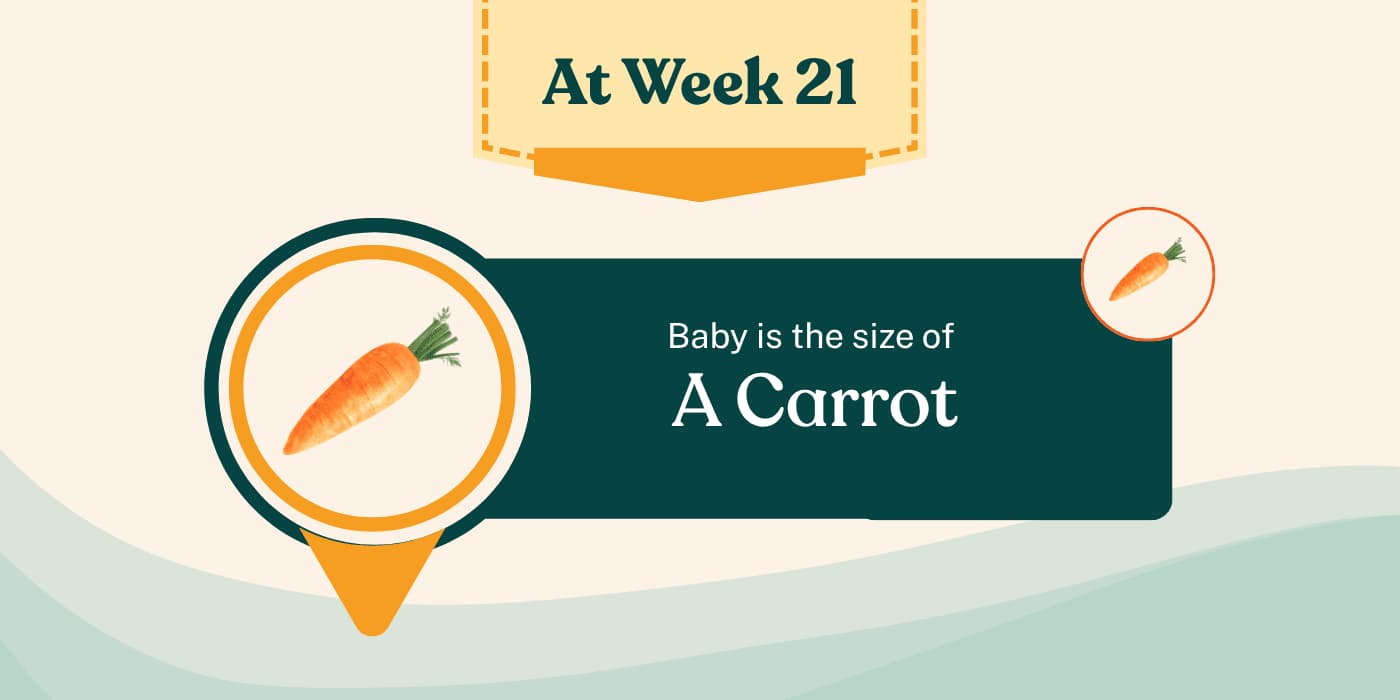Your Pregnancy at Week 21
Science photo library
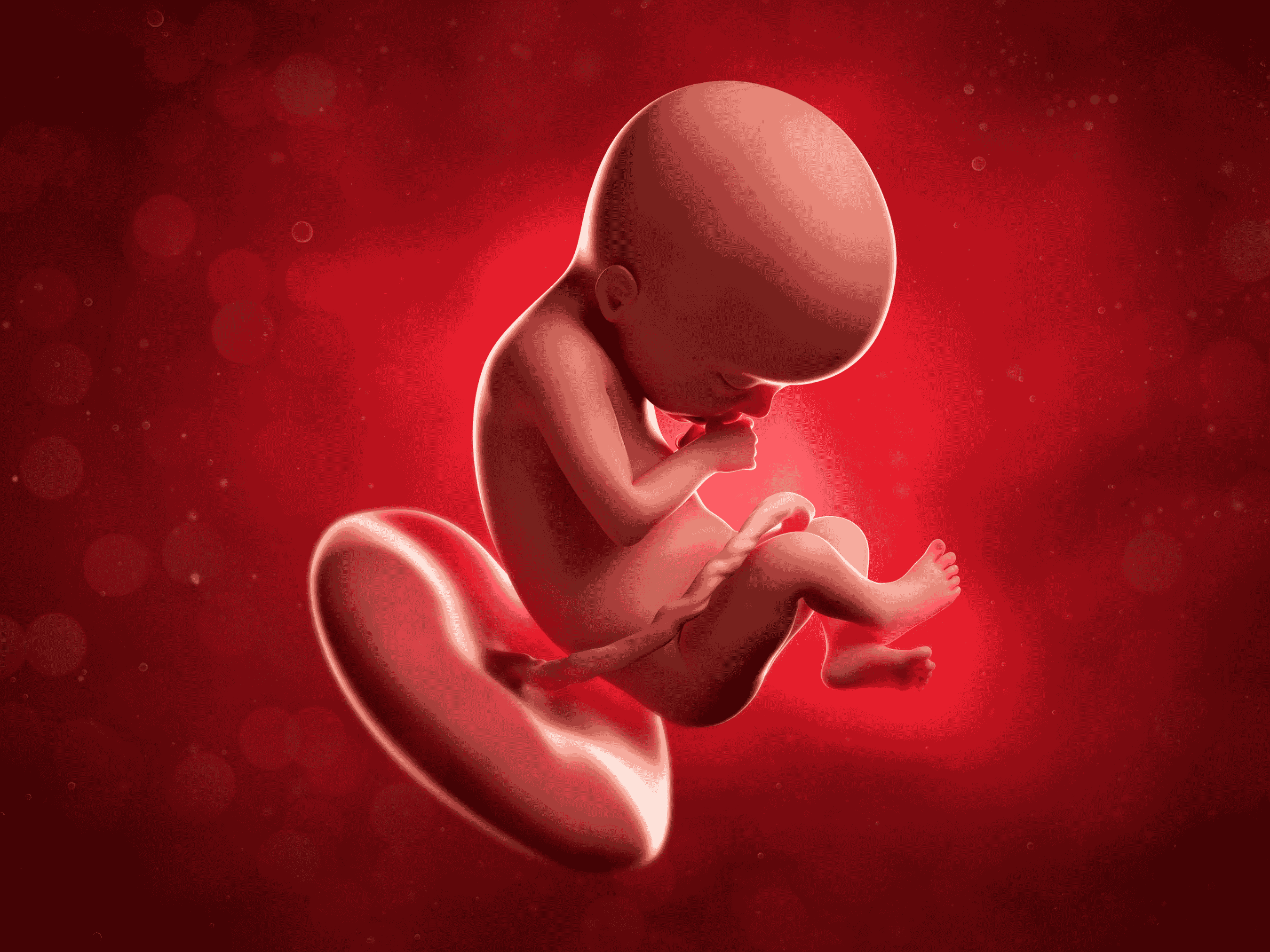
Written by Mindsmaking Medical Writer
Fact Checked by Mindsmaking Professionals
27th, July, 2025
You're in the fifth month of pregnancy, with four months or nineteen weeks remaining. Your baby is growing steadily, and your body adapts to the changes
Welcome to week 21 of your pregnancy! Your baby is now about the size of a carrot, measuring around 10.5 inches from head to toe and weighing about 360 grams.
Your little treasure is growing steadily in your womb and your body is quite adapting to the changes of the growing miracle within you.
Key Takeaways
Until now, your baby's length was measured from the crown of the head to the bottom of the rear end (CRL), but it is now measured from the crown to the heel (CHL).
Your baby measures around 10.51 inches and weighs about 360 grams, comparable to a carrot.
If you gently place your fingers about half an inch above your belly button, you may be able to feel your uterus.
By 21 weeks, you would have gained approximately thirteen to fourteen pounds of extra weight, resulting in noticeable changes in your appearance.
Hormonal changes and an increased metabolic rate during pregnancy can cause you to feel hot and sweaty more often.
You can prevent UTIs by wiping from front to back after urinating, urinating before and after intercourse, and wearing all-cotton or cotton-crotch underwear and pantyhose.
Engaging in 150 minutes of exercise weekly, such as pregnancy yoga or daily walks, can alleviate back pain, promote healthy weight gain, reduce the risk of gestational diabetes, and improve overall health.
To reduce the risk of urinary tract infections (UTIs), you can shower before sexual activity and encourage your partner to urinate before and after intercourse.
Welcoming a new baby changes everything, including your finances. Adjusting your budget early can reduce stress and increase security.
Take a peek
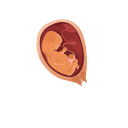
Amniotic fluid
While the placenta still provides most of your baby's nutrition, your baby also consumes small amounts of amniotic fluid and gets some calories from it.
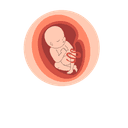
Body length
This week, your baby's arms and legs are proportionate, and their movements are more coordinated. In addition, there has been an increase in the little one's length. We've measured from the crown to rump until now, but now we're measuring from the crown to heel, proving why she grew so quickly.

Blood cells
The liver and spleen of your unborn baby have been hard at work producing blood cells and the bone marrow has developed enough to assist as well.
Baby Development at Week 21
This week, your baby's eyelids have completed their formation, and they are actively moving and swallowing amniotic fluid. Your baby's arms and legs are proportionate, and your baby's movements are much more controlled and coordinated. You have likely felt these movements, known as quickening, though they may not align with your schedule. If your baby is a girl, her vagina is now fully formed, although it will keep developing until birth. (4)
As your baby swallows the amniotic fluid, their digestive tract continues to mature, and they also receive some calories from it. Research has revealed that babies prefer tastes they have been exposed to through the amniotic fluid during their time in the womb. This means the flavours of foods you consume during pregnancy can influence your baby's taste preferences even before birth. (6)
Before now, your baby's length was measured from the crown of the head to the bottom of the rear end (CRL). However, at this stage, your baby's length is measured from the crown of the head to the heel (CHL).
Until now, your baby's liver and spleen have been the primary organs producing blood cells. However, the bone marrow spaces have developed enough to contribute to blood cell formation. As your pregnancy progresses, the bone marrow will become the main site for blood cell production during the third trimester and after birth. By week 30, the spleen will stop producing blood cells, while the liver will stop a few weeks before birth. (7)
Mindsmaking
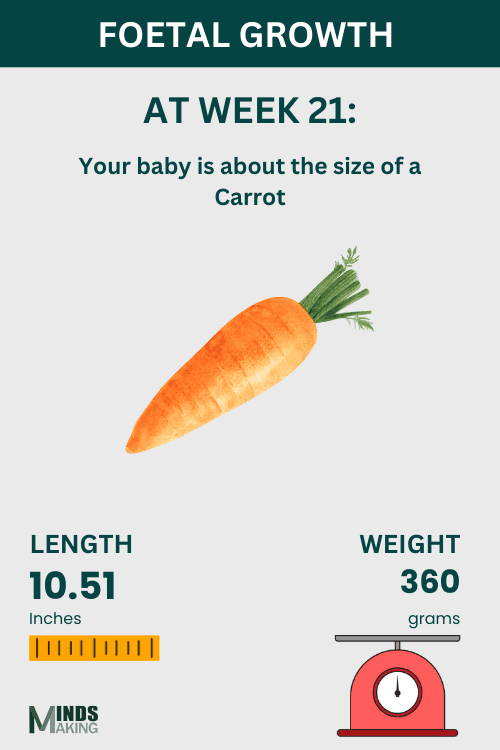
Body Changes at Week 21
Now that you're 21 weeks pregnant, most people you interact with will easily recognise that you're expecting. The reality of being pregnant might be setting in, which can make you feel a bit anxious at times. It's important to remember that these feelings are completely normal and understandable, given the significant changes that come with having a baby.
Remember that you're doing an amazing job growing a little human and will be a fantastic parent. Contact your healthcare provider for support if you're concerned about your feelings.
If you gently place your fingers about half an inch above your belly button, you might be able to feel your uterus. If you're experiencing swelling in your lower legs and feet by the end of the day, consider scheduling regular breaks to rest and elevate your legs.
If you're dealing with oily skin or increased breakouts on your face or body, try washing your face twice daily with gentle soap and water. Many women enjoy this stage of pregnancy because early symptoms like nausea have usually passed, and their growing belly isn’t too uncomfortable yet.
Read This Next
No posts available
Baby Bump at Week 21
By this time, you would have gained about thirteen to fourteen pounds of extra weight, which means you look very different. Every pregnancy is unique, but by 21 weeks, your belly bump might be quite noticeable as your baby and uterus grow. Your uterus may have reached your navel and could be pressing against your stomach
As you progress beyond quickening, initial sensations of your baby's movements, it's exciting to feel these movements become stronger. You can expect to feel some little jabs and kicks from your baby this week and in the upcoming weeks.
Pregnancy Symptoms at Week 21

Stretch mark
As your baby grows, your skin may struggle to keep up with the rapid expansion, causing the connective tissue in the dermis to break and form stretch marks. The timing of their appearance varies, but they typically show up during the second or third trimester. Stretch marks are commonly found on the abdomen and breasts but can also appear on the buttocks and thighs. While there's no proven way to prevent stretch marks, using a moisturiser daily can help keep your skin hydrated.

Hot flashes
Hormonal changes and an increased metabolic rate during pregnancy can cause you to feel hot and sweaty more often. This is due to your body working harder to support both you and your growing baby, which raises your internal temperature. To stay cool, wear loose and breathable clothing to allow air circulation and prevent overheating, drink plenty of water, and use a fan or air conditioning to maintain a comfortable temperature.
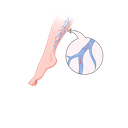
Varicose veins
You might develop varicose veins in your legs, vulva, or rectum due to your expanding uterus putting pressure on the veins. Varicose veins may persist after delivery, but they often improve or disappear. To prevent or reduce their appearance, try elevating your legs above your heart, avoid prolonged sitting or standing, and take frequent breaks to walk around. Maintaining a healthy pregnancy weight can also help reduce vein pressure.

Acne and oily skin
You may experience more frequent skin breakouts during pregnancy due to hormones that cause an overproduction of oil. To manage this, wash your face with a mild cleanser and lukewarm water in the morning, evening, and after exercise. Use oil-free cosmetics to avoid clogging pores, and wash oily hair daily to prevent excess oil from transferring to your skin.

Braxton hicks contractions
You might feel your uterus tighten as it prepares for labour. These sensations, known as Braxton Hicks contractions, are common and typically harmless. They often occur sporadically and should disappear when you change positions or move around. These "practice" contractions help your body prepare for the real thing. However, if the contractions persist, become more frequent, or are accompanied by pain, contact your healthcare provider.

Clumsiness
As your belly grows, your centre of gravity shifts, making you feel unsteady on your feet. To stay safe, avoid high-risk situations where you might fall, as trauma to your abdomen could be dangerous for both you and your baby. Slow down, steer clear of risky tasks like climbing ladders, wear low-heeled shoes, and walk carefully on uneven, wet, or icy surfaces.
Pregnancy Concerns at Week 21
A urinary tract infection (UTI), or bladder infection, is caused by bacteria in the urinary tract. UTIs are more common during pregnancy due to changes in the urinary tract. The uterus sits directly above the bladder, and as it grows, its increased weight can block urine drainage, leading to infection.
If untreated, a UTI can progress to a kidney infection. You should also wipe from front to back after urinating, urinate before and after intercourse, and opt for all-cotton or cotton-crotch underwear and pantyhose. (4)
By now, you should have adjusted to sleeping on your side. Avoid sleeping on your back, as it can restrict blood flow to your baby, which may be dangerous. If possible, ask someone to check on you while you sleep and gently remind you to adjust if you roll onto your back.
Health Tips for Pregnancy Week 21
Maintain a healthy weight
According to the American College of Obstetricians and Gynaecologists, women should aim to gain 1/2 to 1 pound per week during the second trimester. Achieving this weight gain doesn't require doubling your food intake. Women of normal weight before pregnancy only need about 340 extra calories per day to support a healthy pregnancy. If you're having difficulty with your diet, it may be helpful to consult a nutritionist.
Exercise regularly
It's recommended to engage in 150 minutes of exercise a week during pregnancy, whether through activities like pregnancy yoga or daily walks. This can help alleviate back pain, promote healthy weight gain, reduce the risk of gestational diabetes, and improve overall health. It might still be suitable if you were following a high-intensity workout routine before pregnancy. However, always inform your doctor about your exercise regimen to ensure it's safe for you and your baby.
Get enough vitamin C
An essential nutrient to ensure you're getting enough is vitamin C, which protects cells and helps keep both you and your baby healthy. While supplements are an option, you can also maintain adequate vitamin C levels through a balanced diet. Foods rich in vitamin C include strawberries, oranges, blackcurrants, red and green peppers, potatoes and broccoli. Now is a great time to get creative in the kitchen and incorporate these foods into your meals.
Avoid harmful activities
As your belly grows, it is crucial to avoid activities that pose a high risk of falls or other dangers. These include scuba diving, contact sports, snowboarding, downhill skiing, hot yoga, horseback riding, hot tubs, four-wheelers, water slides, and certain amusement park rides. These activities can pose significant risks to both you and your baby.
Manage stress
Everyone experiences stress, but when it's constant or overwhelming, it can lead to issues like during pregnancy. (5)- premature birth and low birth weight. Exercise regularly, seek support from friends and family, and practise mindfulness techniques to alleviate stress. If stress becomes unmanageable, consult your healthcare provider and consider seeing a therapist for additional support.
Eliminate junk foods
A diet rich in fresh fruits and vegetables will provide more energy than junk. Research shows that maintaining a healthy diet, well benefits both you and your baby and reduces the likelihood of conditions like diabetes. Aim to consume five portions of fruit and vegetables daily, and choose wholegrain, low-fat, and low-sugar options whenever possible.
Advice at Partners
Did you know that certain actions can increase your partner's risk of developing a UTI? Urinary tract infections occur when bacteria enter the urinary tract, located just above the vaginal area, often during sexual intercourse or other forms of sexual contact. To help prevent this, you can shower before any sexual activity and encourage your partner to urinate both before and after intercourse. These simple measures can help her avoid the pain and discomfort of a UTI. You should also be open to various intimate ways with your partner. Pregnancy can bring about weight gain, hormonal changes, and concerns about labour and childbirth, all of which might decrease your partner's desire for sex, this is entirely normal. Pay attention to their mood and find other ways to express intimacy, such as holding hands, kissing, cuddling, and touching. For most normal pregnancies, continuing to have sex is generally safe if both partners are willing unless your doctor advises otherwise
Pregnancy Checklist for Week 21
- If you're thinking about enrolling in childbirth, breastfeeding, or infant care classes, now is the perfect time to sign up if you haven't done so already.
- Consider investing in a yoga ball. Sitting on it can help alleviate hip and lower back pain while opening up your pelvic area.
- If they haven't done so already, it might be time for your partner to begin researching and arranging paternity leave. This will ensure they can take time off work to support you and bond with your new baby after the birth.
- Welcoming a new baby changes everything, including your finances. Adjusting your budget early can reduce stress and increase security. Address key issues like insurance, taxes, and childcare promptly
- Ensure you know your work rights during pregnancy, including your entitlement to paid time off for antenatal appointments and care.
Frequently Asked Questions
How big is my baby in week 21?
Now your baby is measured from head to toe instead of from their head to the bottom of their butt. This week, your baby weighs approximately 360 grams and measures 10.51 inches. Your baby can be compared to the size of a carrot this week.
How often should I feel my baby move at 21 weeks?
Many parents start to feel their baby move between 16 and 24 weeks of pregnancy and might notice a pattern in these movements. These movements may feel like bubbles or butterflies in your tummy, developing into more distinct kicks and jabs as your pregnancy progresses. However, each baby is unique; some move frequently, while others are more active at certain times. The placement of your placenta can also affect how you feel these movements. If the placenta is at the front of your uterus (an anterior placenta), the movements might feel softer as the placenta cushions them. Always consult your doctor if you have any concerns about your baby's movements.
When should I be concerned about Braxton Hicks at 21 weeks?
You shouldn't be concerned unless the contractions persist for more than a few minutes, intensify, become more frequent, or are accompanied by fluid or bleeding from the vagina. In such cases, contact your doctor. Otherwise, Braxton Hicks contractions are simply preparing your uterus for the effort of labour. At 21 weeks, Braxton Hicks contractions are normal but typically brief and occasional. They usually last less than two minutes and can be triggered by sex, orgasm, a full bladder, dehydration, or a strong kick from the baby.
What position is the baby in at 21 weeks?
You might wonder about your baby's activities and position as you notice your body changing and your bump growing. It's difficult to determine their exact position since they move frequently. They could lie horizontally across your abdomen, head down with their feet toward your ribs, or in the opposite direction.
Was this article helpful?
How many stars are you giving this article?
Leave a comment
Your email address will not be published.
